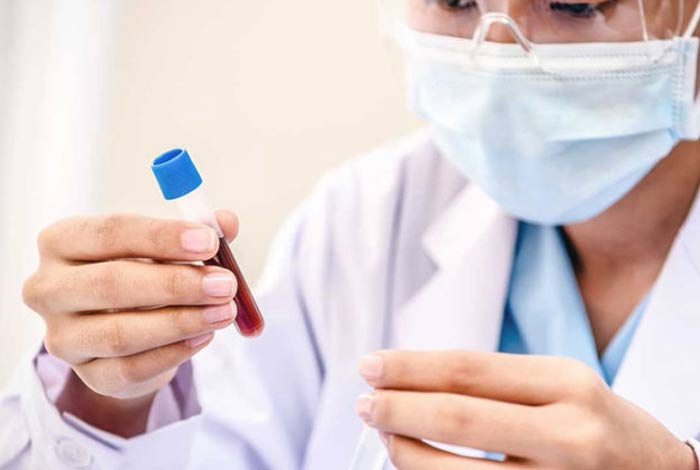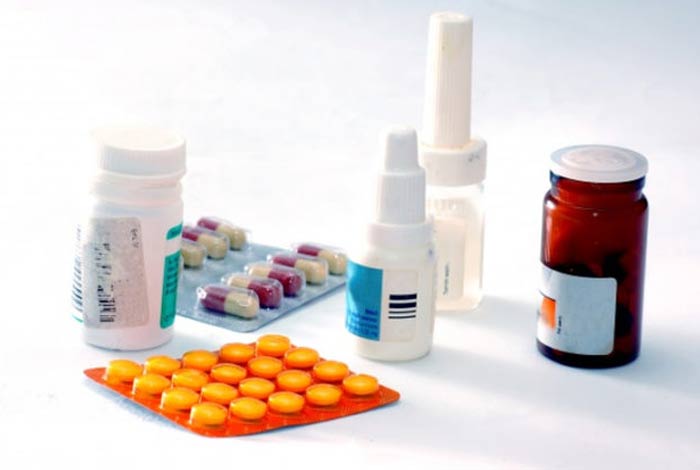
Typhoid once considered an epidemic disease, is now less commonly seen in the USA. This disease is caused by the bacteria, Salmonella enterica serotype Typhi. Another condition called Paratyphoid is just like typhoid but with less severe symptoms and is caused by another bacterium called Salmonella para typhi.
Typhoid is usually spread through a carrier, mostly humans. These bacteria are usually present in food and water, which when consumed by humans results in typhoid disease in them. Once the bacteria enter the human body, they begin multiplying and causing fever and other symptoms in the body. The symptoms of the disease include high fever, headache, abdominal pain, constipation or diarrhea.
The prevalence of Typhoid is still very common in many parts of the world with an estimate of 21.5 million people affected by the disease annually.[Source]. This disease is treated by using various antibiotics. Untreated, Typhoid can prove to be fatal. This condition resolves within 3 to 4 weeks.
Types and Symptoms of Typhoid
Types of Typhoid:
While Typhoid doesn’t have any types but the bacteria (Salmonella) that causes Typhoid has many stereotypes. Salmonella typhi is a strain of Salmonella bacteria that is responsible for causing Typhoid. On the other hand, one of these variants of Salmonella, paratyphi A, paratyphi B and paratyphi C cause a less severe condition called Paratyphoid. Much like the symptoms of typhoid, paratyphoid also has similar symptoms with less severity.

Symptoms of Typhoid:
Once the person is infected by the bacteria, it takes about 1-2 weeks for the infection to develop and show symptoms. Listed below are the symptoms of typhoid:
- High fever, measuring up to 104-degree Fahrenheit.
- Headache.
- Abdominal pain.
- Skin rashes (in some cases).
- Loss of appetite.
- Weakness.

Risk Factors of Typhoid
Some of the risk factors typhoid are:
- Living in contact with a person, who has been dealing with typhoid or is recovering from the condition.
- Travelling to areas with high rate of typhoid occurrence.
- Practicing poor hygiene.
- Poor sanitation condition.
- Children are more susceptible to Typhoid.
- Diseases that suppress the immune system, like AIDS.
- If you are healthcare worker, you may contract the disease from patients.
- Failing to vaccinate before entering Typhoid prone endemic regions.
- Living in a crowded house.

Do I have Typhoid?
Identifying Typhoid can be easy but not very accurate. There are many diseases that have similar symptoms to that of a Typhoid fever. If you experience high grade fever that is persistent, feel low and weak, and have headaches, vomiting and abnormal bowel movements, you most likely have Typhoid.
Nonetheless, it is advised that you consider paying a visit to your doctor even if you are suffering from a simple fever for more than three days. Fever is an auto-response mechanism of our body that indicates infection.

Causes and Prevention of Typhoid
Causes of Typhoid:
Typhoid is majorly spread by contamination of water and food by the bacterium, Salmonella Typhi. The bacteria are spread by human fecal matter that contaminate water. Washing fruits and vegetables with this water can also lead to the spread of Typhoid.
Some people affected by the bacteria do not show any symptoms of Typhoid and are often considered as asymptomatic carriers. This means, these people can cause the spread of disease without developing the condition themselves.
People who have been diagnosed with Typhoid and claimed to have recovered, may also become asymptomatic carriers of the disease.
Prevention of Typhoid:
- You can prevent yourself from Typhoid by taking vaccines before traveling to a Typhoid prone endemic area. Typhoid vaccines are available in two forms – oral tablets and injection.
- Frequently wash your hands with hot and soapy water. This will control many infections. Always keep an alcohol-based sanitizer with you in case, there is unavailability of water.
- Do not consume water that is untreated.
If you have already been infected by the bacteria, you can prevent its further spread by keeping these points in mind: - Take antibiotics prescribed by your doctor.
- Often wash your hands with hot and soapy water. You may also need to scrub your hands for 30 seconds thoroughly.
- Avoid handling food items.

Diagnosis and Tests for Typhoid
When the doctor suspects a case of Typhoid, he would begin asking about your travel history. However, medications will only be provided after identifying the presence of Salmonella typhi bacteria in your body. The test can be carried out by collecting and examining either your blood, urine, stool or bone marrow sample. The collected sample is put in a medium that encourages the growth of bacteria, which is then examined under a microscope to discover any presence of Salmonella Typhi. Today, blood tests have become the mainstay for diagnosing Typhoid.

Treatment and Care for Typhoid
Treatment of Typhoid:
Antibiotics are the most effective treatment method to cure Typhoid. The common antibiotic drugs given to Typhoid patients are Ciprofloxacin (Cipro) and Ceftriaxone (Rocephin). Ciprofloxacin is an oral antibiotic drug whereas Ceftriaxone is an injectable antibiotic.
Once you starting taking these drugs, your symptoms may improve within 3-4 days. But, it is important that you complete your prescribed course to remove any bacteria that may still be present in your body.
Prolonged use of these drugs can cause side-effects and development of resistance toward some strains of bacteria.
Read more about its most common drug list here…
Care for People with Typhoid:
- You can provide care for someone dealing with typhoid fever by helping them take medicines on time.
- Help the afflicted person maintain hygiene.
- Provide the affected person with treated water and hygienic food.
- If possible, take the affected person to the doctor for follow-ups with doctor.
- Remind the recovering person to wash their hands frequently.

OTC Medications and Self-Management Methods for Typhoid
OTC Medications for Typhoid:
There are no OTC medications available for Typhoid fever. It is highly advised that you consult your doctor before beginning the use of any medicines. Typhoid medicines are only sold on a prescription.
Self-Management Methods for Typhoid:
- Take your antibiotics on time.
- Frequently wash your hands with soap and hot water.
- Avoid handling food items so as to prevent the spread of infection.
- Do not discontinue the use of medicines upon seeing improvements in symptoms. Run the course as long as asked by your doctor.

Natural Ways to Treat Typhoid
- Consume garlic: Garlic is known to have powerful antimicrobial properties. It can help you fight against the bacteria that cause Typhoid.
- Clove: Cloves contain essential oils which show antibacterial properties. While fighting against the Typhoid causing bacteria, clove can also help you deal with two major symptoms of Typhoid, vomiting and diarrhea.
- Holy Basil: Holy Basil is used in the treatment of many diseases. Since the plant leaves contain antibacterial and antimicrobial properties, they can be consumed to fight against Typhoid causing bacteria.
- Banana: Bananas are considered as natural remedies for Typhoid. Bananas are known to relieve fever and the soluble fiber in them helps in absorption of fluid in the intestines. Potassium found in bananas also act as a replacement for electrolytes, lost during diarrhea.
- Oranges: Oranges strengthen the immune system as these contain a wide array of vitamins and minerals.
- Combination of Basil Leaves and Black Pepper: The combination of these two antibacterial food products, certainly makes a strong and effective remedy against Typhoid.
- Apple Cider Vinegar: Apple cider vinegar helps in Typhoid by bringing down the body temperature and keeping the body cool. It also helps in hydrating the body.
- Echinacea: A powerful herb that helps in building up the immune system and boosting tissue growth. Drinking Echinacea tea can help fight against Typhoid.

Health Tip by Expert
Though there are fewer reported cases of Typhoid in the country, this does not mean that the disease is not common. Typhoid can affect anyone and at any time. It is important to keep your surroundings clean and maintain proper hygiene. Use treated water for consumption and be careful while travelling to regions where Typhoid rates are high. A vaccination must be taken while travelling to such regions. If you experience any symptoms of Typhoid, you must quickly consult your doctor.




